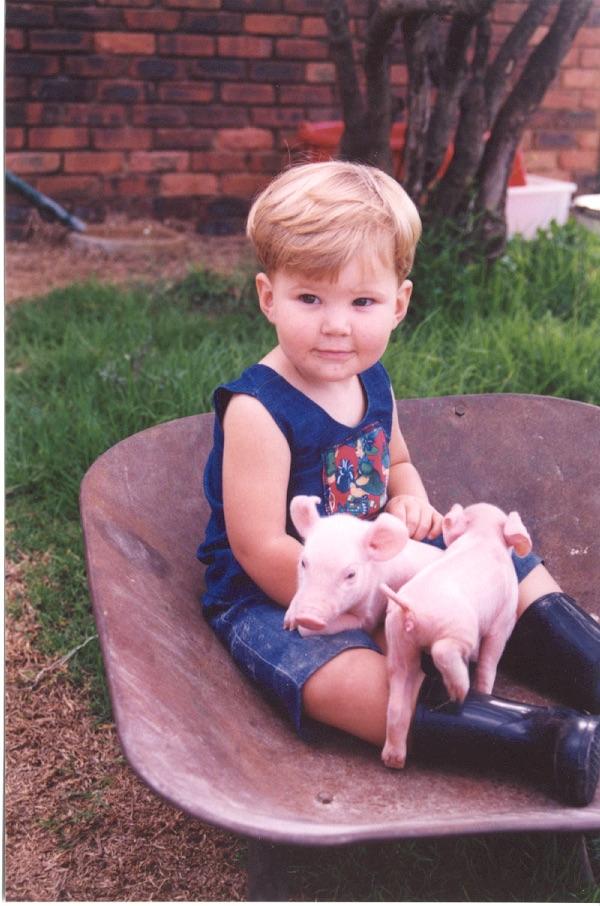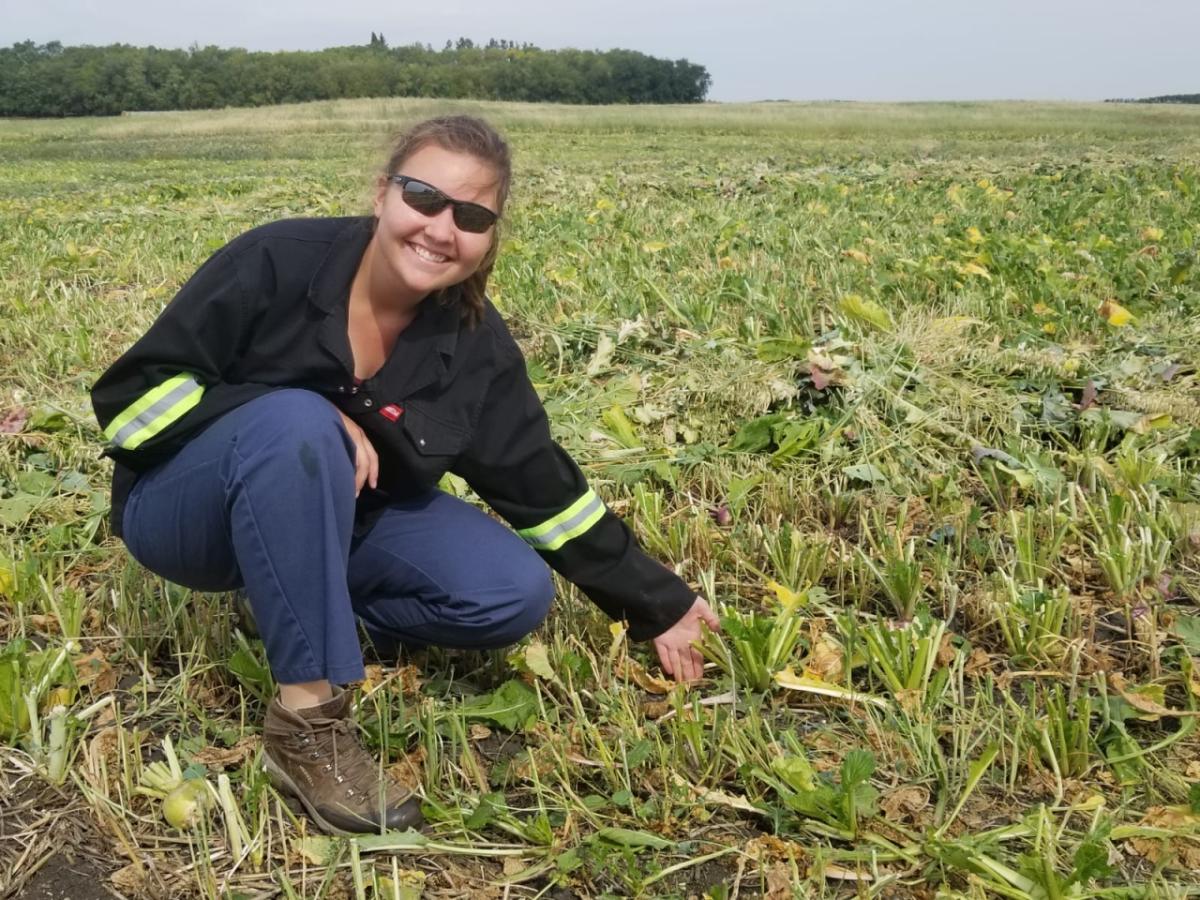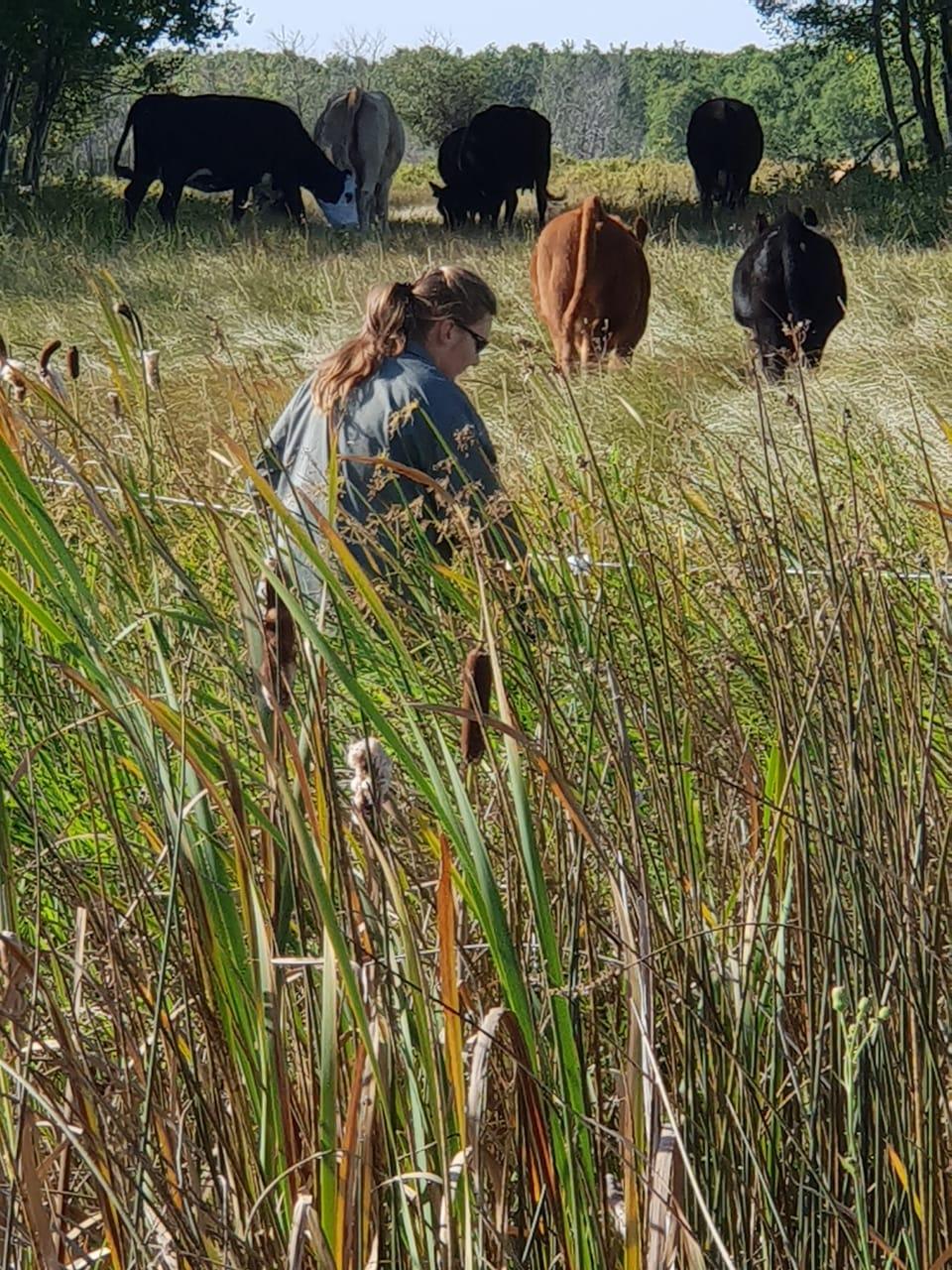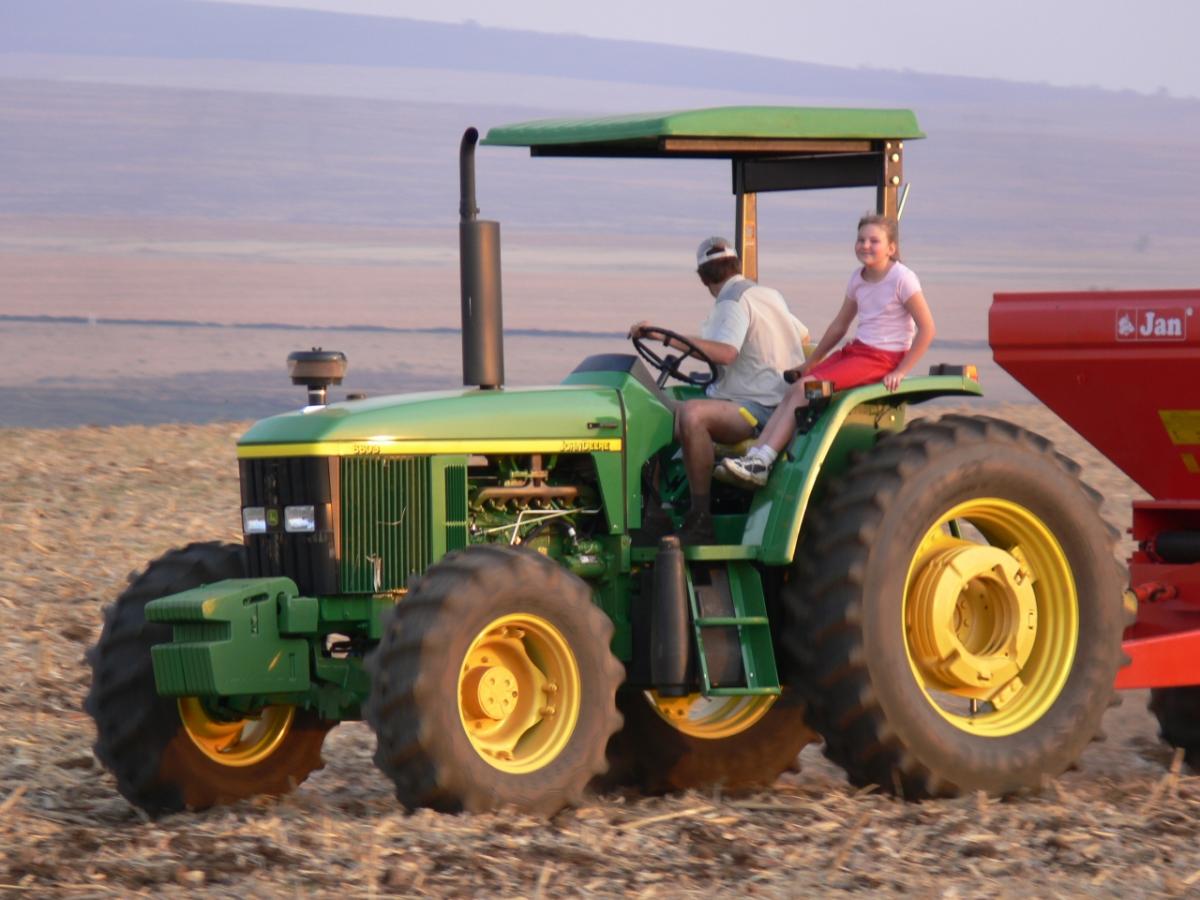Family Farming Legacy From South Africa to Canada
By Ray Lourens
Growing up, life revolved around the farm – from riding with dad or grandad in the combine, to doing homework in the office while mum and grandmother did the company’s books.
Since a young age, I was inspired by my grandmother, a woman who traded her job as a teacher in Brakpan, South Africa, to become a farmer’s wife after she married my grandad.
To contribute to grandad’s business, my grandmother started farming with hogs, and in time, built a farrow-to-finish set up where the piglets were born on the farm and completely grown by the time they left. That’s a process typically done by two separate operations. Later, she also started growing flowers for market along with various other commodities.
I think that my grandparents were very progressive for their generation and passed that on to dad and his siblings. My sisters and I grew up in an environment where we were encouraged to keep improving and moving forward.
As time went by, my family started facing new challenges. Safety became a big issue in South Africa and crime started to pick up in our community. Word of farm attacks crept into every conversation at gatherings and at one stage, there was an attack on a neighboring farm.
It was then that my family decided to look at alternative options. In the end, we sold everything, my grandparents retired and my family of five (my parents and two younger sisters) left the property our family had farmed for six generations to start anew somewhere else.
My father, who was committed to farming, continued looking for the right place to start over after the family moved to Edmonton, Alberta, in 2014, and eventually bought a mixed farm in Southeastern Saskatchewan.
I was 17 years old when my family moved to Canada. I finished my last year of high school in a new country and started university in tandem with learning a new climate, culture and language.
Those first few years were hard on our family, I would not wish this experience on anybody else.
Following high school, I applied to the JR Shaw School of Business and was enrolled in the business management program at Northern Alberta Institute of Technology (NAIT). During my time there, I was a project manager for the campus Enactus team, where we converted shipping containers into hydroponic farms in order to produce fresh produce in remote areas.
I also held a variety of part-time jobs while studying which included working at a registry office, bakery, local restaurant and as a mechanic’s assistant. I never felt sure of what I wanted to do after graduation, but those experiences showed me what I didn’t want: a traditional 9 to 5 job.
Every other weekend during college, I drove from Edmonton back to the farm (450 miles each way) to help my family with seeding, harvest and overall farm management.
We had to build a business from nothing, and dad needed the help whether he would admit it or not. At the time, I was busy with my diploma and working part time. I certainly didn’t think that farming would become my full-time future career.
I loved working with family, but because of safety and social issues in South Africa, it would not have been viable for me to be a farmer, so I never gave it a second thought. It was during those weekends working with my dad that I realized my mindset was starting to change.
The more I worked with my dad building our business, the less I wanted to pursue a career in anything other than farming.
After a year of commuting back and forth from school, I spoke with my parents about the possibility of making my work arrangement permanent. Since then, I’ve worked alongside my parents to implement new practices and expand the business.
One thing I’m especially proud of is the implementation of cover crops into our crop rotation. The benefits are twofold; by growing cover crops we are putting carbon back into the soil to feed the microbes which in turn feeds the plants, these diverse plant mixes then become a nutrient-dense feed for our beef cattle.
From the start, we used rotational grazing not just on our cover crops but also on our native pastureland. Starting out, we had paddocks that had been overgrazed by cattle and sheep for many years, and land that had been hayed for years without ever seeing livestock.
To increase productivity and soil health, we used electric fencing to move our cows daily, which gave the plants adequate recovery periods that they had been lacking.
Within the first year, we noticed that we could keep more cows per acre than the previous average – our cattle were healthier because they continued to graze new grass every day, we had more diversity in plants on the hay land and better overall regrowth.
I have always been made to feel that I have a place in the family business, my ideas are valued, and all decisions are made in partnership with my parents. I love to see the results of our hard work every single day. To me that’s the most satisfying aspect of farming.
It takes a lot of work, but when I see small improvements it makes it all worth it.
Grandad once told dad and I that if things get tough, we should look up to the sky and know where our help comes from. That has really stuck with me. Now I can honestly say that by God’s grace, we’ve been able to improve our farmland and will continue to do so in the future.
Farming is not for the faint of heart; a lot of times things don’t happen according to plan and we as farmers make a lot of sacrifices to live this lifestyle. I do however believe that with great sacrifices comes great reward. Everyday I have something to thank God for – a beautiful sunset, green rows sprouting up a week after seeding, or a newborn calf standing up for the first time. There is never a dull moment in agriculture, that’s what makes it exciting.






